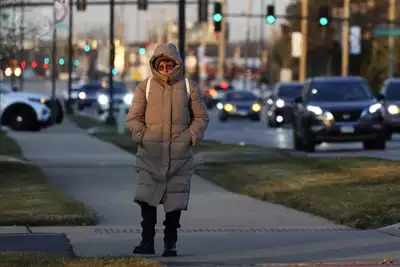A blast of extreme cold is poised to descend on the central US this weekend before spreading to New York and the rest of the East Coast, testing power grids and threatening to break temperature records.
Frigid conditions will sweep the Midwest and South, including Texas, starting on Saturday and then shift east early next week. The low in Dallas is poised to reach 21F (minus 6C) Monday night, while temperatures in Manhattan will drop near 10F late Tuesday, according to the National Weather Service.
Saif Ali Khan Health Update
The cold will start in the northern Rocky Mountains and Great Plains and “by Sunday spread all the way to the Gulf Coast and much of the eastern US,” said Marc Chenard, a senior branch forecaster at the US Weather Prediction Center. “There will be below-normal temperatures in Texas during the day on Saturday. Most of the state gets below freezing through Wednesday.”
Bone—chilling weather across the densely populated areas of the central and eastern US will raise energy demand and could send utilities scrambling to meet the spike in consumption, since much of the South relies on electricity for heating. A winter storm four years ago killed more than 200 people and led to the collapse of Texas’ electric grid. Cold temperatures can also disrupt the production of oil and natural gas by causing water in wells and pipelines to freeze.
Houston’s daily average temperature will sink to almost 24F degrees below normal Tuesday, commercial forecaster Maxar said. In Dallas, readings will fall to 21F below the 30-year average on Monday.
About 31 locations could see daily high temperatures cold enough to break or tie records on Monday, mainly in the South, according to the US Weather Prediction Center. A handful of records could fall in Texas on Tuesday.
While the cold will start to ease by the middle of next week, Monday’s presidential inauguration promises to be a chilly one, with temperatures in Washington dropping to 24F under partly sunny skies, according to the National Weather Service. However, wind gusts up to 25 miles (40 kilometers) per hour could make it feel much colder, Chenard said.




